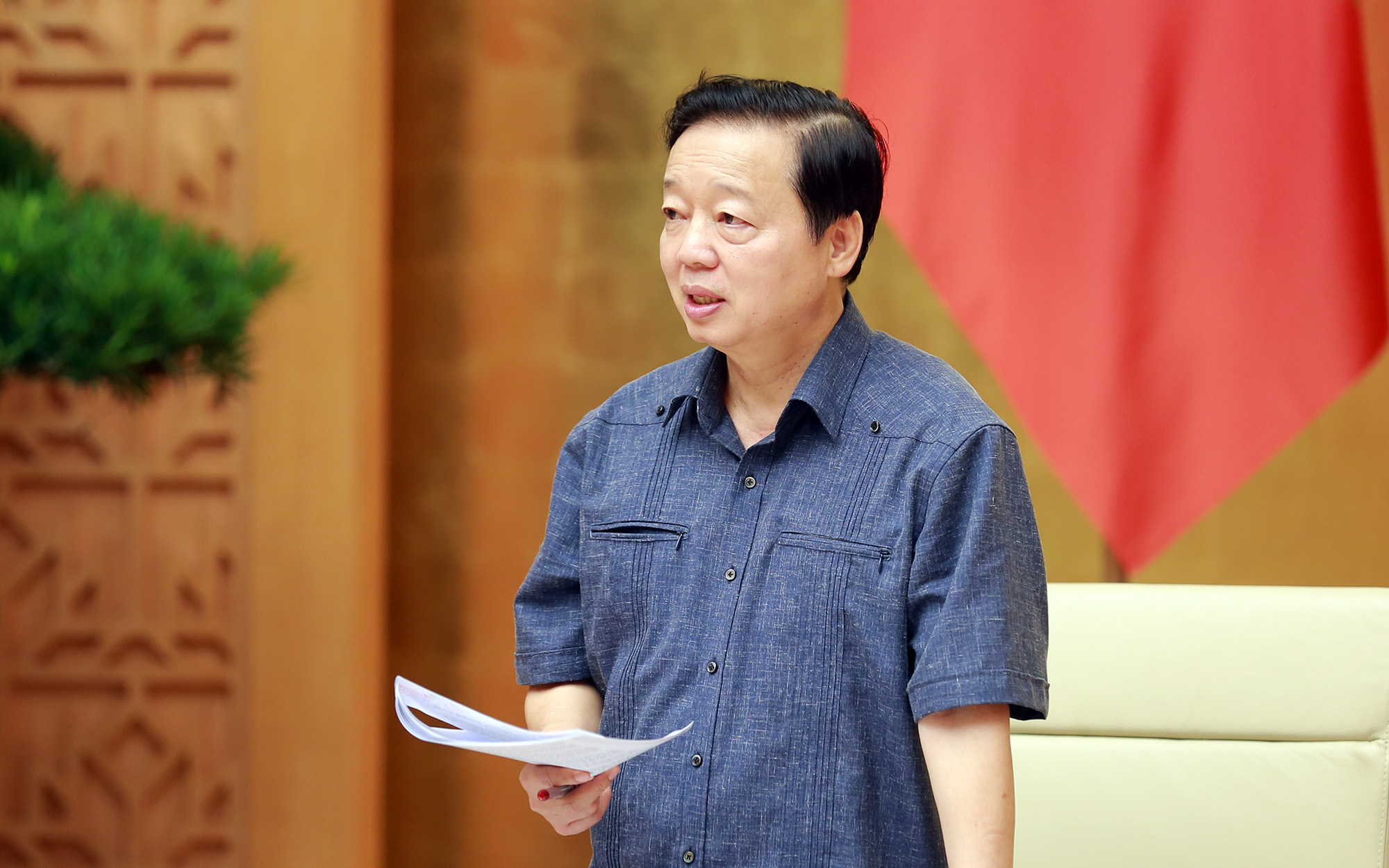At a meeting on August 13 concerning the draft amendments to the Land Law, Deputy Prime Minister Tran Hong Ha emphasized the need for a single, nationally consistent land valuation system determined by the state and applied across all transactions.
"Localities should apply a unified land price list, adjusting it according to market data while keeping coefficients unchanged, unless new policy decisions are made," he said. He also suggested that adjustments for policy beneficiaries should be handled at the local level to ensure fairness and socio-economic effectiveness.
 |
Deputy Prime Minister Tran Hong Ha speaking at the meeting on the draft amendments to the Land Law, August 13. Photo: VGP |
Deputy Prime Minister Tran Hong Ha speaking at the meeting on the draft amendments to the Land Law, August 13. Photo: VGP
The Ministry of Agriculture and Rural Development proposed revisions to the land price list regulations as part of the draft replacement Land Law.
In its submission for the 2024 draft Land Law amendments, the ministry proposed two options. The first involves the government issuing a land price list every 5 years instead of annually, based on location and region. For areas with digital cadastral maps and land price databases, prices would be determined for individual plots. Provincial People's Committees would have the authority to make necessary additions to the list within a given year.
The second option involves eliminating specific land prices and reinstating land price adjustment coefficients (K coefficients). These coefficients represent the percentage increase or decrease for specified areas and locations, used to adjust prices annually. Provincial People's Committees would issue these coefficients starting the year after the 5-year land price list comes into effect.
The 2024 Land Law mandates market-based land valuation but doesn't require the price list to strictly adhere to fluctuating market prices. This has led to discrepancies, particularly the large gap between residential and agricultural land prices.
According to a representative from the Ministry of Agriculture and Rural Development, the state needs to control and determine land prices in the primary market. However, valuation relies on secondary market prices and expert advice, resulting in prices that don't accurately reflect reality.
The surplus value appraisal method also faces challenges due to its dependence on volatile market information. This not only affects land access but also increases investment costs and reduces local competitiveness.
Many meeting participants agreed on simplifying financial obligations based on the land price list and land use coefficients. They also suggested clearer regulations for applying these to specific projects.
Beyond land prices, the deputy prime minister urged the Ministry of Agriculture and Rural Development to carefully consider regulations for selective opening of the real estate market. This involves allowing scientists, entrepreneurs, and patriotic foreigners access to property outside restricted areas, while maintaining national defense and security.
Regarding land access policies, he highlighted the confusion between auctions (selling land use rights to the highest bidder) and bidding (selecting investors offering optimal efficiency and low prices while meeting requirements).
"Auctions focus on specific benefits, while bidding considers overall benefits," he said, requiring clear criteria for each in the draft, with an emphasis on economic growth based on land investment efficiency.
The government leader asked the Ministry of Finance to focus property taxes on unused land, delayed projects, and vacant completed houses, rather than projects using large areas for development.
Regarding unresolved land and real estate projects, the deputy prime minister called for legal tools within the draft law to address these definitively and avoid waste. He also stressed the need to balance expanding state land rights with protecting citizen rights.
Phuong Dung












